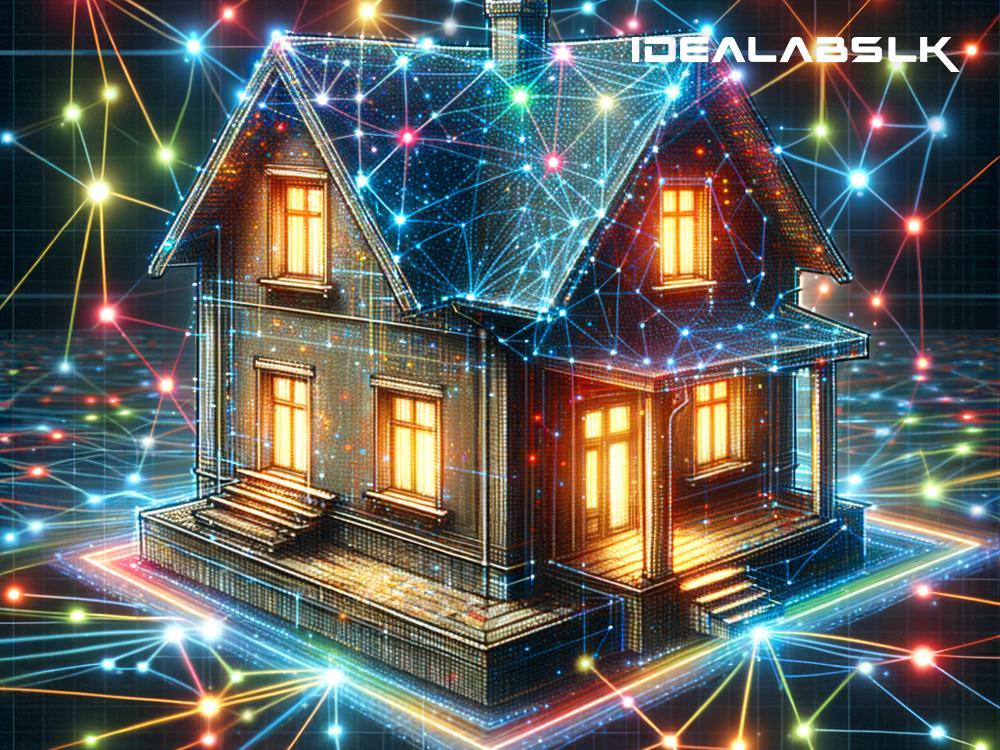Blockchain and Real Estate: Streamlining Authentication and Fighting Fraud
In the world of buying and selling property, transparency and trust are paramount. However, the real estate industry, with its complex web of transactions, is often marred by cases of fraud and inefficiencies. Enter blockchain technology, a game-changer that's beginning to revolutionize how properties are bought, sold, and authenticated, making the process more transparent, secure, and efficient.
Understanding Blockchain
To grasp how blockchain can transform real estate, let's first simplify what blockchain is. Imagine a digital ledger or a record book that isn't stored in one place but is duplicated across a network of computers. Every time a transaction occurs, it's recorded in this ledger. However, it's not just scribbled down; it's secured through a complex cryptography puzzle, making it nearly impossible to hack or alter. Because it's decentralized, everyone on the network can see the transactions, ensuring transparency and trust.
The Real Estate Revolution
Now, how does this technology apply to real estate? The traditional process of buying or selling property is often lengthy, paper-heavy, and fraught with potential for fraud. From forging documents to identity theft, the risks are high. Blockchain steps in as a powerful tool to mitigate these risks, streamlining property authentication and fraud prevention in several ways:
1. Immutable Records
Once a real estate transaction is recorded on a blockchain, it cannot be altered or deleted. This permanence acts as a formidable barrier against fraud, ensuring that every property's history is transparent and tamper-proof. For buyers, this means a reliable trail of ownership, free from the worry of altered documents or undisclosed encumbrances.
2. Smart Contracts
Blockchain introduces "smart contracts," self-executing contracts with the terms directly written into code. These contracts automatically enforce and execute the terms of an agreement once conditions are met, minimizing reliance on intermediaries and reducing the risk of manipulation or fraud. For instance, a smart contract could automatically transfer property ownership once payment is verified, streamlining the process dramatically.
3. Tokenization
This is where things get really interesting. Blockchain allows for the creation of digital tokens that represent ownership of a property. These tokens can be bought, sold, and traded much like stocks on an exchange. This not only makes transactions quicker and more efficient but also opens up the real estate market to a broader audience, potentially increasing liquidity and reducing the chances of fraud by ensuring more transparent transactions.
4. Enhanced Due Diligence
Blockchain can store critical documents required for property verification, such as title deeds and inspection reports, in a secure, immutable form. This ensures that all parties have access to the same, unaltered information, thereby reducing the risk of document forgery and simplifying the due diligence process.
5. Streamlining Transactions
By cutting out middlemen and making transactions direct, blockchain can save both time and money for buyers and sellers. This isn't just about reducing potential points of fraud; it's also about making the whole process more efficient.
The Road Ahead
While blockchain in real estate is still in its early days, several startups and even some governments are experimenting with its applications. For instance, countries like Sweden are testing blockchain for land registries, and numerous platforms are emerging to facilitate property transactions and investments using blockchain.
The potential benefits are immense, from making property investment more accessible to ensuring that buying your dream home doesn't turn into a nightmare. However, challenges remain, including regulatory hurdles, the need for widespread adoption, and the technical complexities of blockchain itself.
Conclusion
As we stand on the cusp of a technological revolution in real estate, it's clear that blockchain holds the promise to transform the industry. By ensuring property authentication, reducing fraud, and streamlining transactions, blockchain can bring about a new era of efficiency, transparency, and trust in real estate. While it's not a panacea for all the industry's issues, its potential to improve the home-buying and selling process is undeniable. As this technology continues to evolve and mature, it could very well redefine our relationship with real estate in the years to come.

